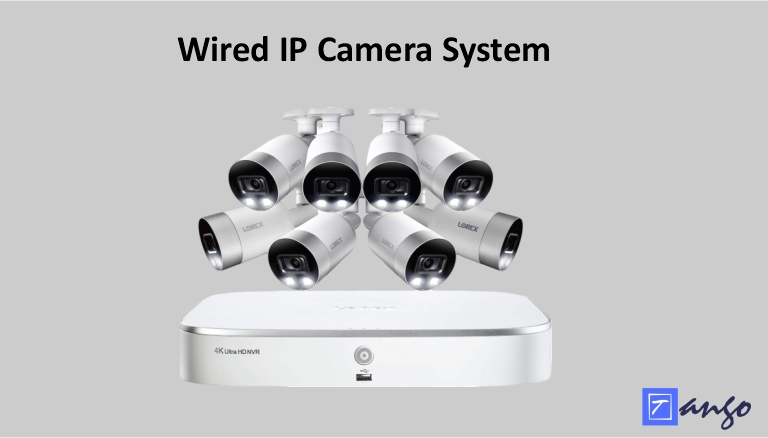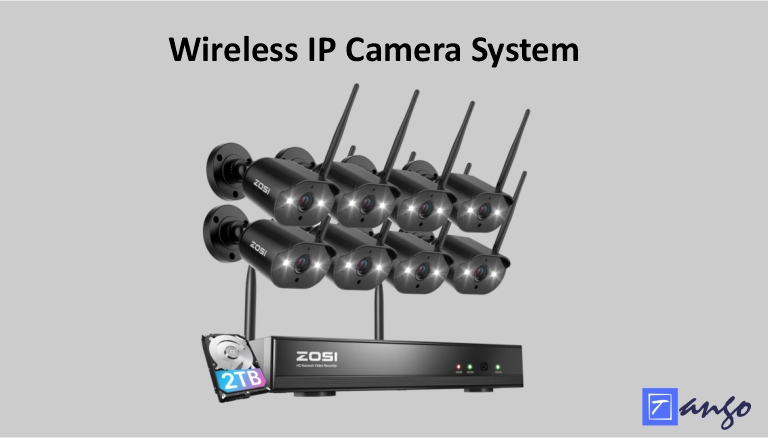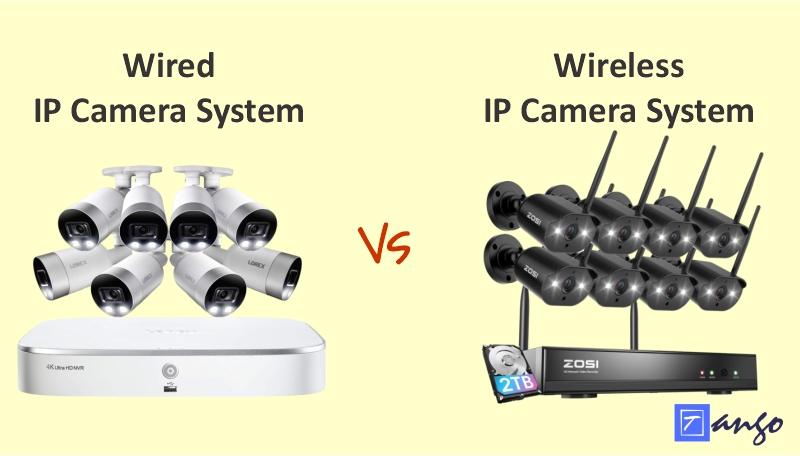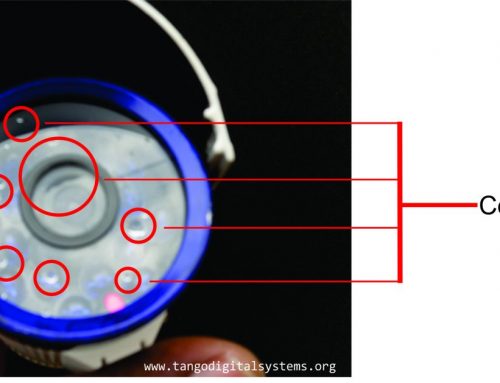IP camera systems have grown in popularity for both personal and professional use, providing security and peace of mind. However, selecting the right system can be difficult with so many available options. Wired and wireless IP camera systems are two of the most popular solutions to protect your assets, each with its benefits and drawbacks. In this article, we will present an overview of IP camera systems, explain why it is important to choose the right system and compare wired and wireless choices. So, whether you want to secure your home or your business, keep reading to determine which system is right for you.
Wired IP Camera Systems

Wired IP camera systems are among the most traditional types of surveillance systems. They are made up of a physical cable that connects the IP security camera to the network video recorder (NVR), ensuring a reliable and robust connection.
One of the benefits of wired IP camera systems is their dependability in terms of connectivity and power supply. They are not sensitive to interference from other devices, making them a more secure solution than wireless systems. Because cables can transport more data than Wi-Fi, these cameras have improved resolution and image quality.
However, due to the running of cables, which can be costly, wired systems require professional installation. There are also restrictions in terms of flexibility and manoeuvrability – the cameras cannot be easily relocated without significant alterations to the wiring and installation.
While wired cameras provide outstanding protection and dependability, they may not be appropriate in all situations. The installation expenses and limited flexibility may be deterrents for homeowners who prefer to set up their own systems or who do not have a specific spot in mind for the cameras.
Individual needs and tastes will ultimately determine whether or not to use wired IP camera systems.
Wireless IP Camera Systems

Wireless IP camera systems, as the name implies, send video and audio signals using wireless technologies such as Wi-Fi. IP cameras, routers, and an NVR device are among the components included in these systems. One of the major benefits of wireless IP camera systems is that they do not require cables or connections, allowing them to be deployed anywhere without regard for structural limits.
Wireless IP camera systems have several advantages, including ease of installation, versatility, and mobility. These systems are great for DIY enthusiasts because they can be installed quickly and without the assistance of a professional. Furthermore, wireless IP camera systems can be quickly moved from one area to another, giving you more flexibility.
However, one of the major disadvantages of wireless IP camera systems is that they are susceptible to signal interference. Other wireless devices and physical impediments such as walls can cause interference, lowering the quality of the footage. They are also more expensive than wired systems.
Despite these drawbacks, wireless IP camera systems are gaining popularity, and for good reason. They provide convenience, versatility, and simplicity in installation, making them an ideal alternative for residential and commercial security. So, if you want a surveillance system that is simple to set up and extremely adaptable, a wireless IP camera system may be the best option for you.
Comparison Between Wired and Wireless IP Camera Systems
Wired systems can be difficult to install and set up since they need drilling and stringing wires throughout your home or office. Wireless systems, on the other hand, are simple to set up and can be up and running in no time. Wireless IP cameras, on the other hand, may have connectivity concerns and may require a strong Wi-Fi signal for optimal performance.
When it comes to security and dependability, wired systems are preferred because they offer a direct and dedicated connection to the Internet. Nonetheless, wireless networks have made significant progress in terms of security and encryption.
Wireless systems are often more expensive since they require additional components such as cameras, Wi-Fi extenders, and storage devices. Meanwhile, wired systems can be more cost-effective because the cameras are purchased once and no further equipment is required.
Finally, when selecting a system, maintenance may be a factor. Because they do not rely on Wi-Fi signals to work, wired systems often require less maintenance. Wireless systems may need more attention to ensure they’re working to achieve excellent performance.
Final Advice
Both wired and wireless systems have advantages and downsides. To select the best choice for you, you must first assess your individual needs and preferences.







Leave A Comment